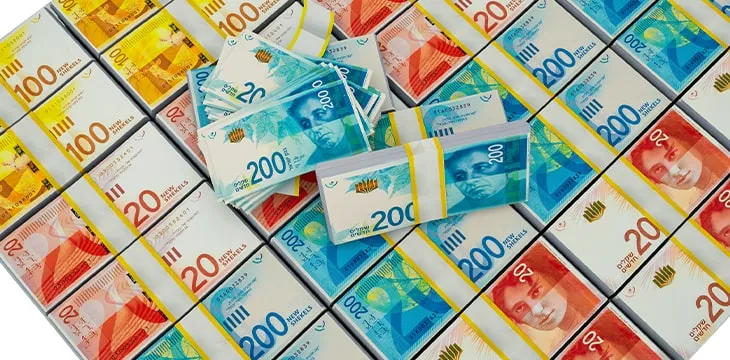|
Getting your Trinity Audio player ready...
|
Israel is tightening its policy on payments of large sums of money in cash and bank checks to fight financial crimes. According to a report by Middle East-focused news outlet Media Line, starting on August 1, the maximum amount of cash individuals and businesses can spend in transactions has been slashed.
Per the report, businesses can spend a maximum of 6,000 shekels (or $1,760) in cash payments, while individuals can spend a maximum of 15,000 shekels (or $4,400). The country is also considering the prohibition of holding more than 200,000 ($58,660) shekels cash at any private residence.
Under the new law, any payments exceeding the stated amounts must be made using alternative methods, such as a digital transfer or debit card. The transactions can also include a cash payment equal to 10% of its total value.
The Israel Tax Authority (ITA) is in charge of enforcing the restriction. Tamar Bracha, the ITA official heading the law’s enforcement, told the news outlet that the restriction would make it more difficult for criminal actors to operate.
“We want the public to reduce the use of cash money. The goal is to reduce cash fluidity in the market, mainly because crime organizations tend to rely on cash. By limiting the use of it, criminal activity is much harder to carry out,” Bracha said.
Meanwhile, the rule exempts cash transactions with charitable institutions and trades with Palestinians in the West Bank who are not citizens of Israel. In both cases, a detailed report is still required by the ITA.
Digital assets are an option for payments in Israel
The law is not entirely new in Israel. According to a Reuters report, it was first introduced in 2018 and came into force in 2019. At the time, the ITA limited cash transactions for individuals and businesses to 50,000 shekels and 11,000 shekels, respectively, with plans for further reductions.
Since then, the law has faced pushback even as Israel has been taking steps to encourage digital payments. One way the country hopes to do this is through a central bank digital currency (CBDC).
The Bank of Israel (BOI) has been accelerating its digital shekel project efforts. Despite being undecided on launching the CBDC, the central bank recently announced that it had completed successful cross-border testing of the CBDC with Hong Kong’s central bank, the Hong Kong Monetary Authority (HKMA).
Similarly, the BOI has proposed a draft regulation that will improve AML/CFT compliance of digital assets, making them more suitable for use in digital payments.
Watch: The BSV Global Blockchain Convention panel, Blockchain for Digital Transformation of Nations
https://www.youtube.com/watch?v=PJWPfb-8Ebc

 08-26-2025
08-26-2025 





